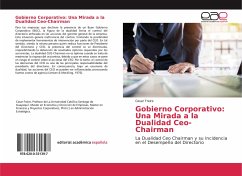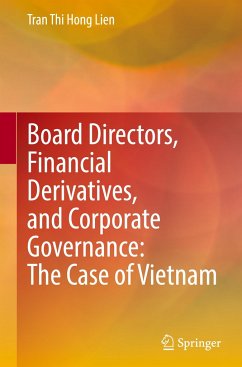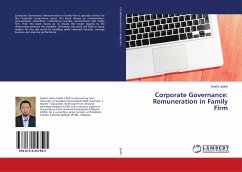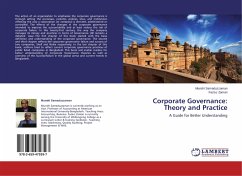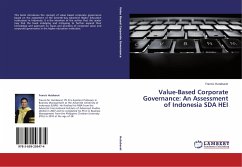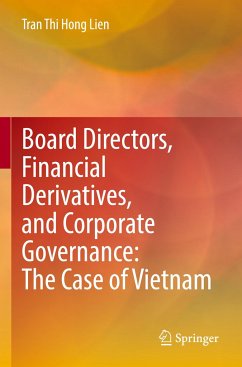
Corporate Governance: A Look at the Ceo-Chairman Duality
The Ceo Chairman Duality and its Impact on Board Performance
Versandkostenfrei!
Versandfertig in 6-10 Tagen
27,99 €
inkl. MwSt.

PAYBACK Punkte
14 °P sammeln!
For companies that decline the presence of Good Corporate Governance (GCG), the duality figure limits the control of the board of directors focused on the actions of the company's CEO. This situation generates control inefficiency, limiting the possibility of implementing intervention tools by the CEO. In this sense, being the same person who performs the functions of Chairman of the Board and CEO, the presence of control is diminished, making it impossible to obtain the optimal results required by the shareholders. The CEO-Chairman duality is not optimal when it comes to maximizing shareholde...
For companies that decline the presence of Good Corporate Governance (GCG), the duality figure limits the control of the board of directors focused on the actions of the company's CEO. This situation generates control inefficiency, limiting the possibility of implementing intervention tools by the CEO. In this sense, being the same person who performs the functions of Chairman of the Board and CEO, the presence of control is diminished, making it impossible to obtain the optimal results required by the shareholders. The CEO-Chairman duality is not optimal when it comes to maximizing shareholder wealth, since in these cases control over the CEO's actions is put at risk. Therefore, control over the CEO's decisions is one of the main responsibilities of the chairman of the board. Consequently, under a duality scenario, the CEO's actions can be influenced, leading to high agency costs (Jensen & Meckling, 1976).






